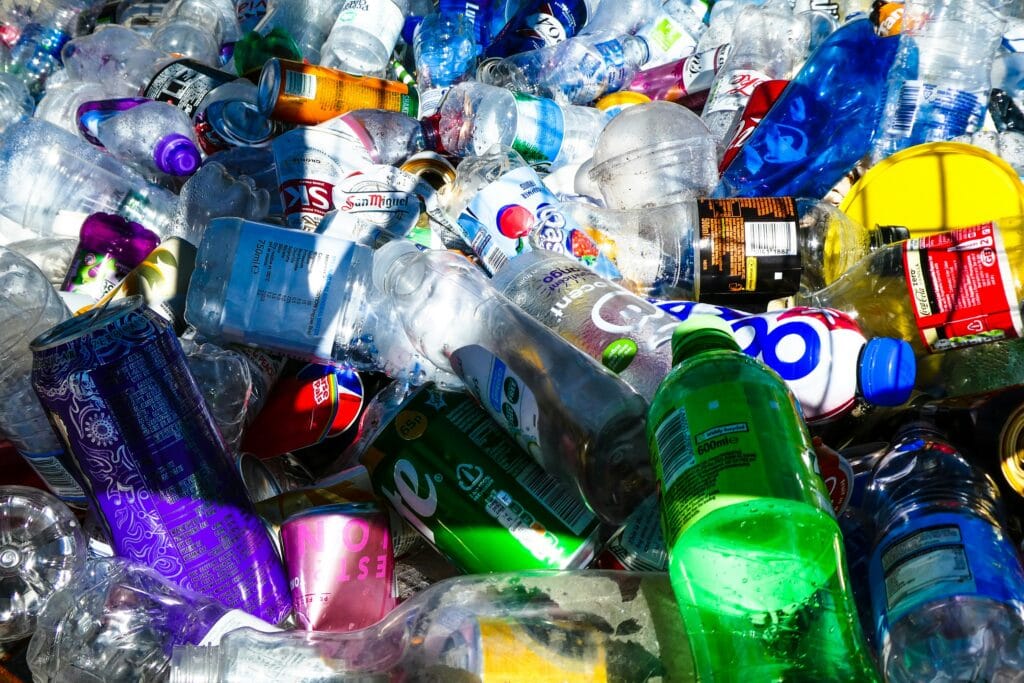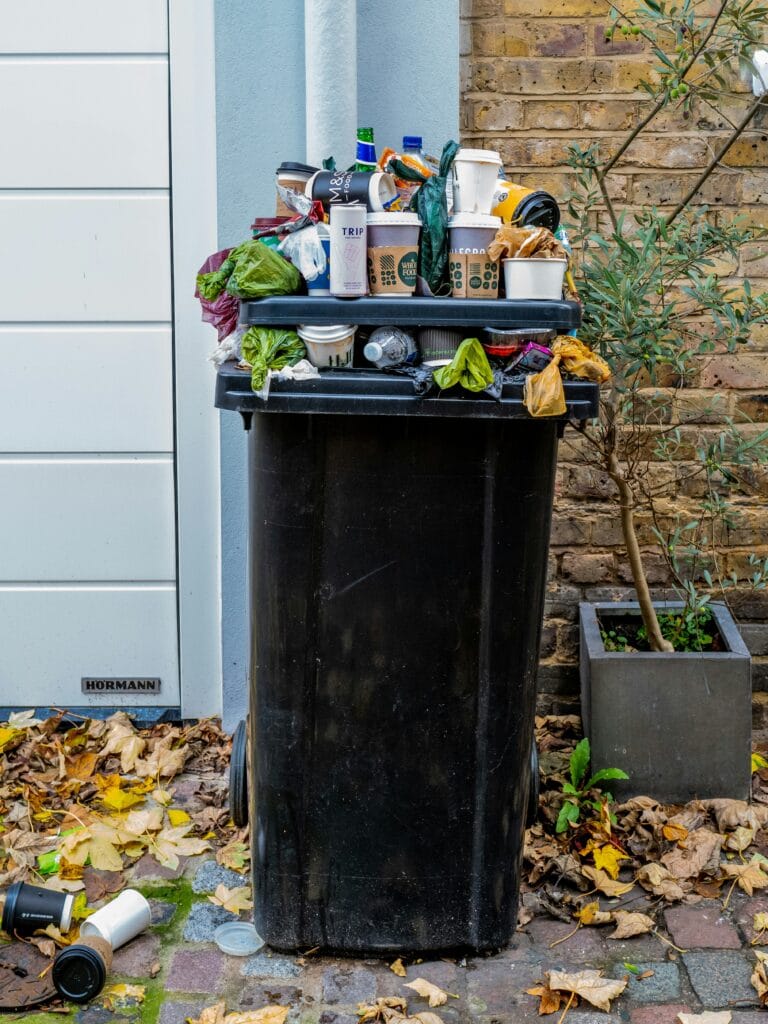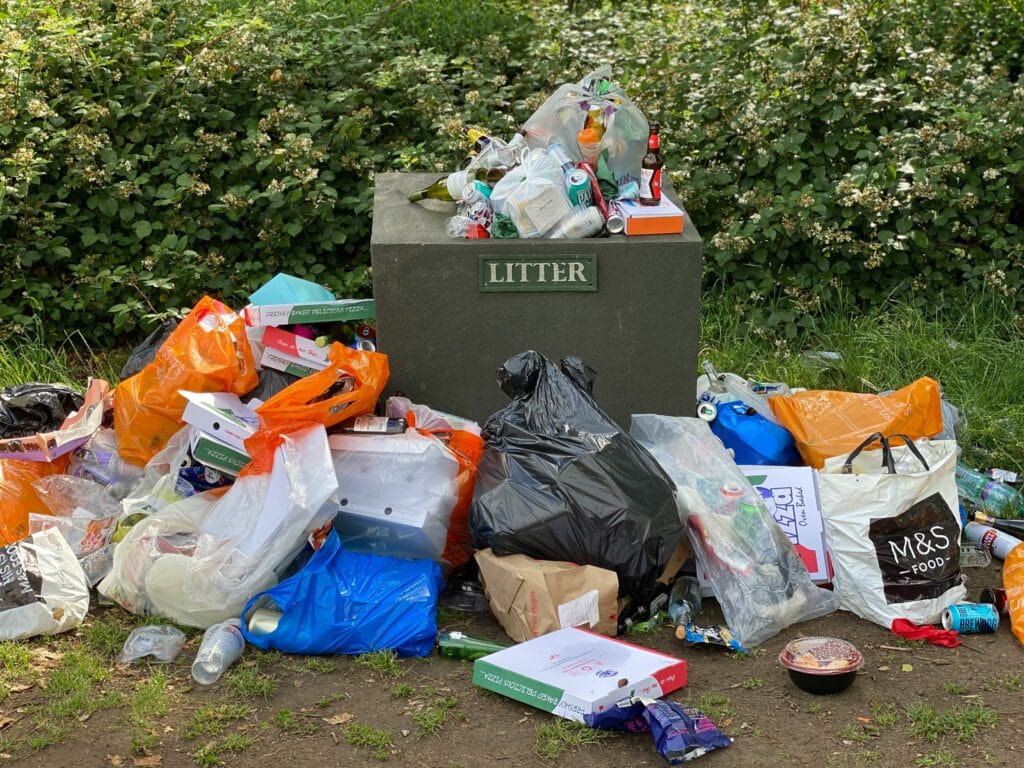UK Council Recycling Services in Turmoil
Across the UK, families are growing tired of paying more and more in council tax while local services decline. Nowhere is this more obvious than with UK council recycling services.
In many areas, collections are unreliable, rules are confusing, and households are forced to put up with flimsy recycling bags that blow across the street in bad weather. Large families, already stretched, are left with overflowing bins and little support.

The result is a system that frustrates residents, undermines public trust, and fails to deliver on its environmental goals. Here’s the crucial point: this isn’t just about money. Councils will plead poverty, but much of the waste and frustration comes from inefficiency, inconsistency and poor design.
The Problems With UK Council Recycling Services
Missed and unreliable collections
Families across the UK report bins not being collected on time, particularly in rural areas where routes are harder to reach. For parents juggling work, school runs and busy households, a missed collection means rubbish piling up for days or even weeks. Overfilled bins spill over into gardens and streets, attracting pests and leaving families feeling they are paying for a service that simply doesn’t work.
Flimsy recycling bags and boxes
In many councils, recycling is collected in thin bags or open crates. On windy days, these are blown down the street, scattering bottles, cans and paper into gardens and drains. The result? Untidy neighbourhoods, blocked drains, plastics washed into rivers, and yet more street-cleaning costs for councils. Families who carefully sort their recycling see their efforts quite literally blow away.
Overflowing bins for large families
Most councils take a one-size-fits-all approach to bins. A family of six has the same recycling allowance as a single-person household. Larger bins can be requested, but the hoops families have to jump through are ridiculous. Forms, waiting lists, and demands for “proof” leave many households struggling week after week. Councils already know household size from council tax and electoral roll data. This should be automatic, not an obstacle course.
Confusing rules across the UK

Different councils use different coloured bins, accept different materials, and issue different instructions. Moving house — even to the next town — can mean learning a whole new system. Unsurprisingly, this leads to high contamination rates. Research shows 84% of UK households unknowingly put the wrong items in their recycling bins. When loads are rejected, they end up in landfill or incineration instead, wasting everyone’s effort.
Stagnating recycling rates
After years of growth, UK recycling rates have stalled and in some areas are falling. Families are understandably disillusioned: “Why bother sorting it if it won’t be collected properly, or if it ends up in landfill anyway?” Without reliable services and clear rules, household recycling will only decline further.
Fixing the System Without Spending More
Councils often argue that they simply don’t have the money to improve recycling services, but in truth, many of the solutions would save money by reducing inefficiency. Here’s how:
Smarter, more efficient systems
- Adopt delivery-style route planning, like courier firms use, to reduce missed collections.
- Send free text or app alerts to let residents know if collections are delayed.
- Savings: fewer repeat trips, fewer complaint calls, less wasted staff time.
Weather-proof collections
- Phase out flimsy bags and crates in favour of lidded bins as standard. This doesn’t require new money — simply better procurement when stock is replaced.
- Use free council channels (websites, apps, social media) to remind households to secure bins in high winds.
- Savings: less litter to clear, fewer blocked drains, lower street-cleaning costs.
Fairness for families
- Automatically allocate larger bins to big households using existing council data. No long application forms, no waiting lists, no hoops to jump through.
- Savings: less overflow, fewer fly-tipping incidents, fewer complaints to process.
Consistent rules across the UK
- Councils can adopt the WRAP “Recycle Now” national labelling system to reduce confusion.
- Simple, standardised “yes/no” lists make it easier for families to comply.
- Savings: less contamination, more recyclable material sold on instead of paying landfill fees.
Transparency and trust

- Publish simple online dashboards: missed collections, recycling rates, savings from reduced contamination.
- Families can see how their recycling is making a difference, rebuilding trust.
- Savings: fewer complaints, more resident buy-in, higher participation rates.
Why It Matters
When recycling services fail, it isn’t just an inconvenience. Overflowing bins attract pests and increase fly-tipping. Flimsy bags blowing down the street create pollution and make neighbourhoods look neglected. Blocked drains from scattered recycling cause flooding risks. And when families feel their efforts don’t matter, recycling rates fall — costing councils more in landfill fees and harming the environment.
Households want to recycle. Parents want to set a good example for their children. Communities want clean streets and working systems. What they don’t want is to be punished with higher council tax for services that feel unreliable and unfair.
Conclusion
UK council recycling services don’t need more money — they need to be smarter, fairer, and more efficient. Smarter routing, weather-proof bins, fair capacity for large families, consistent rules, and transparency would improve services without costing more.
By cutting inefficiency and focusing on fairness, councils could save money, reduce complaints, and rebuild trust. Most importantly, they could give families the reliable, dignified service they are already paying for.
Because recycling shouldn’t be a source of stress. It should be simple, fair, and effective — for households, for councils, and for the planet.

